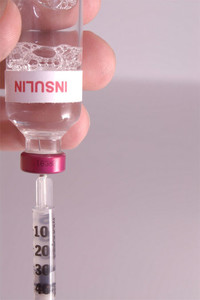Biocon has been awarded a contract by the Malaysian Ministry of Health to supply recombinant human insulin formulations to the country, a deal reportedly worth US$68 million.
Biocon is an Indian pharmaceutical company based in Bangalore that manufactures generic active pharmaceutical ingredients (APIs) for Europe and the US, specializing in biosimilar insulin for treatment of diabetes. Biocon is Asia’s largest insulin producer and produces recombinant human insulin, insulin glargine (small crystals that slowly release insulin, given once a day to control blood sugar) and insulin delivery devices.
The company announced on 25 January 2017 a deal to supply Malaysia with recombinant human insulin formulations produced at its large biopharmaceutical facility in Johor in the south of the country.
Malaysia is currently experiencing a high incidence of diabetes due to rapid urbanization, changing lifestyles and increasingly westernized dietary habits. Over 3.3 million Malaysians are diagnosed with the condition and over US$560 is spent each year on each of these people. Locally manufactured and affordable recombinant human insulin has the potential to reduce the cost burden and increase access to insulin therapy for diabetes patients in Malaysia.
Biocon’s will be Malaysia’s first locally manufactured biosimilar approved by the National Pharmaceutical Control Bureau for commercial sale, and represents a milestone for the company’s first manufacturing facility in Malaysia.
The contract, which was awarded to Biocon subsidiary Biocon Sdn Bhd, is worth a reported Malaysian Ringgit 300 million (approximately US$68 million). It will be provided over three years and involves the supply of insulin cartridges and reusable insulin ‘pens’. This is part of the Malaysian government’s Off-Take Agreement (OTA), which aims to promote local manufacturing of pharmaceuticals and thus reduce Malaysia’s dependence on imports. Biocon commented that the contract could also be extended by a further two years, subject to government approval.
Biocon says its high quality; affordable insulin and delivery devices will strengthen Malaysia’s position in the global biotechnology market. The company is one of the first Indian companies to partner with the Malaysian government. Biocon’s integrated insulin facility was selected as an ‘Entry Point Project’ under Malaysia’s Healthcare National Key Economic Area (NKEA) initiative and most of the workforce is drawn from the local area.
CCM Pharmaceuticals, a local pharmaceutical company with an extensive supply chain across Malaysia including hospitals and primary care clinics, will deliver the products made at the site.
Biocon’s Managing Director Kiran Mazumdar-Shaw commented that they were ‘extremely proud’ to expand access to affordable insulin therapy for people in Malaysia. ‘It is a matter of pride that this is a “Made in Malaysia” insulin product manufactured by Biocon Sdn Bhd at the BioXcell Biotech Park in Nusajaya, Johor. We expect our Malaysian facility to cater to the growing needs for affordable insulins across the globe’. Indeed, the site could also supply insulin glargine to Europe. The product, which was submitted for approval as a biosimilar of Sanofi’s Lantus, is currently under review by the European Medicines Agency [1].
Related articles
Mylan and Biocon submit trastuzumab biosimilar to FDA
Reference
1. GaBI Online - Generics and Biosimilars Initiative. Mylan and Biocon submit insulin glargine biosimilar to EMA [www.gabionline.net]. Mol, Belgium: Pro Pharma Communications International [cited 2017 Feb 24]. Available from: www.gabionline.net/Biosimilars/News/Mylan-and-Biocon-submit-insulin-glargine-biosimilar-to-EMA
Permission granted to reproduce for personal and non-commercial use only. All other reproduction, copy or reprinting of all or part of any ‘Content’ found on this website is strictly prohibited without the prior consent of the publisher. Contact the publisher to obtain permission before redistributing.
Copyright – Unless otherwise stated all contents of this website are © 2017 Pro Pharma Communications International. All Rights Reserved.








 1
1











Post your comment